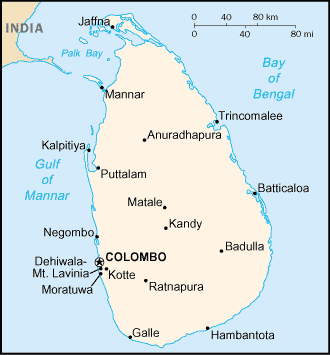Sri Lanka Surf Trip Vacation Destinations

Lanka Surf Trips: Hikkaduwa - Arugam Bay surf tours and cultural tours- around Sri Lanka.
 SRI LANKA LIES practically in the center of the Indian Ocean and thus has climatic and cultural links with three continents. Monsoon winds, driving against Sri Lanka's peaks, support lush vegetation on the southern half of the island, but the northern half is a dry zone. The winds affect human culture as well, having brought wave after wave of immigrants and merchants following the southerly trade routes. Outsiders found a wide range of ecological niches on the coast, on the plains, or in the mountains, and they built a remarkably variegated civilization. Merchants long have sought Sri Lanka as the source of pearls, jewels, spices, and tea. Visitors for centuries have marvelled at the beauty and great diversity of the island. SRI LANKA LIES practically in the center of the Indian Ocean and thus has climatic and cultural links with three continents. Monsoon winds, driving against Sri Lanka's peaks, support lush vegetation on the southern half of the island, but the northern half is a dry zone. The winds affect human culture as well, having brought wave after wave of immigrants and merchants following the southerly trade routes. Outsiders found a wide range of ecological niches on the coast, on the plains, or in the mountains, and they built a remarkably variegated civilization. Merchants long have sought Sri Lanka as the source of pearls, jewels, spices, and tea. Visitors for centuries have marvelled at the beauty and great diversity of the island.
The South Asian landmass to the north has strongly influenced Sri Lankan culture in the past and continues to do so. From an outlander's perspective, some of the main aspects of Sri Lankan society--language, caste, family structure--are regional variants of Indian civilization. From the perspective of the islander, however, the Indian influence is but the largest part of a continuing barrage of stimuli coming to Sri Lanka from all sides. The people of the island have absorbed these influences and built their own civilization.
Sri Lanka's position between 5 and 10 north latitude endows the country with a warm climate, moderated by ocean winds and considerable moisture. The mean temperature ranges from a low of 15.8° C in Nuwara Eliya in the Central Highlands (where frost may occur for several days in the winter) to a high of 29° C in Trincomalee on the northeast coast (where temperatures may reach 37° C). The average yearly temperature for the country as a whole ranges from 26° C to 28° C. Day and night temperatures may vary by 4 to 7 . January is the coolest month, causing people, especially those in the highlands, to wear coats and sweaters. May, the hottest period, precedes the summer monsoon rains.
The rainfall pattern is influenced by the monsoon winds of the Indian Ocean and Bay of Bengal and is marked by four seasons. The first is from mid-May to October, when winds originate in the southwest, bringing moisture from the Indian Ocean. When these winds encounter the slopes of the Central Highlands, they unload heavy rains on the mountain slopes and the southwestern sector of the island. Some of the windward slopes receive up to 250 centimeters of rain per month, but the leeward slopes in the east and northeast receive little rain. The second season occurs in October and November, the intermonsoonal months. During this season, periodic squalls occur and sometimes tropical cyclones bring overcast skies and rains to the southwest, northeast, and eastern parts of the island. During the third season, December to March, monsoon winds come from the northeast, bringing moisture from the Bay of Bengal. The northeastern slopes of the mountains may be inundated with up to 125 centimeters of rain during these months. Another intermonsoonal period occurs from March until mid-May, with light, variable winds and evening thundershowers.
ENTRY/EXIT REQUIREMENTS: A passport and onward/return ticket and proof of sufficient funds are required. A no-cost visitor visa, valid for 30 days, will be granted to tourists at the time of entry into Sri Lanka. Business travelers are required to have a visa prior to arrival. Individuals traveling to Sri Lanka for purposes other than tourism (i.e. volunteering or working) must obtain an entry visa from the nearest Sri Lankan Embassy or Consulate before their arrival in Sri Lanka. Visitors staying more than 30 days for any purpose must pay residency visa fees. Travelers need yellow fever and cholera immunizations if they are arriving from an infected area. Sri Lankan law requires all foreign guests in private households to register in person at the nearest local police station. Individuals who stay in private households without registering may be temporarily detained for questioning. This requirement does not apply to individuals staying in hotels or guesthouses.
Back to Indian Ocean Surf Trip Vacation Destinations Travel Directory...
|
